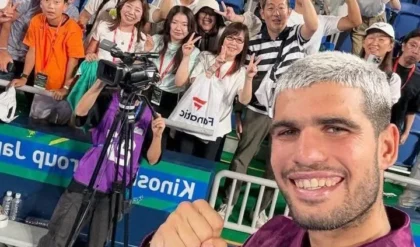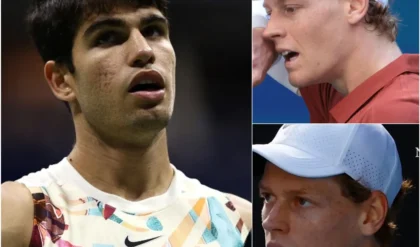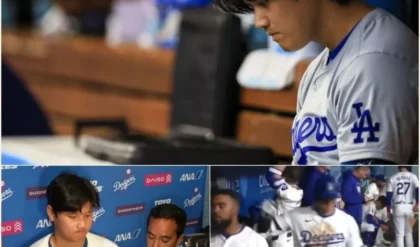Mixed martial arts (MMA) is a sport that thrives on competition, not just inside the octagon but also outside of it. The drama, the rivalries, and the personal stories all contribute to the spectacle that fans love. Recently, the MMA community has been abuzz with the escalating tension between two top welterweight contenders: Belal Muhammad and Khamzat Chimaev. Their interactions, both online and in person, have sparked debates about authenticity, sportsmanship, and the fine line between rivalry and respect.

The Aftermath of Belal Muhammad’s Loss
The latest chapter in this saga began after Belal Muhammad suffered a defeat at the hands of Jack Dalena. Losses are always tough, especially for fighters who are on the cusp of title contention. For Belal, this loss was not just a professional setback but also a catalyst for renewed scrutiny from his peers—most notably, Khamzat Chimaev.
Khamzat Chimaev’s Twitter Roasting
Khamzat Chimaev, never one to shy away from controversy, took to Twitter to voice his opinions about Belal Muhammad. His tweets were direct, unfiltered, and, as many would say, classic Khamzat. He accused Belal of being “fake,” questioning the authenticity of his public persona versus his private interactions.
Chimaev’s main point of contention was the perceived contradiction in Belal’s behavior. On one hand, Belal referred to Khamzat as his “Muslim brother,” a term that carries significant weight in their shared cultural and religious context. On the other hand, Belal publicly stated his desire to fight and defeat Chimaev, which Khamzat interpreted as a betrayal of that brotherly bond.
> “He called me Muslim brother then he’s saying he wants to beat me. So should I be nice to you? I like real people, not fake.”
This tweet resonated with many fans who value authenticity and straightforwardness, especially in a sport where mind games and psychological warfare are commonplace.
The Palestine Flag Gesture: Unity or Facade?
One of the most talked-about moments between the two fighters occurred when they met in person and raised the Palestine flag together. This gesture was widely praised as a sign of unity and solidarity, transcending the usual animosity that comes with fight promotion. For a brief moment, it seemed as though their rivalry had been set aside in favor of a greater cause.
However, Chimaev’s subsequent comments suggested that the peace was only temporary. He pointed out that, despite the public display of camaraderie, the underlying tension remained unresolved. According to Chimaev, the beef was still simmering beneath the surface, even as they stood side by side in support of Palestine.
The Accusations of Fakery
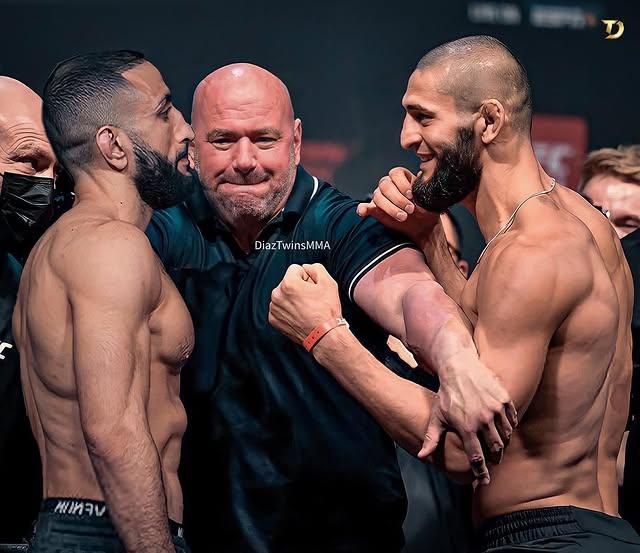
At the heart of Chimaev’s criticism is the accusation that Belal Muhammad is “different on camera” compared to how he is in real life. This is a common charge in the world of professional sports, where athletes often feel pressure to maintain a certain image for the public while behaving differently behind closed doors.
Chimaev’s frustration is understandable. In a sport that values honor and respect, being called a “brother” only to be challenged to a fight can feel disingenuous. For Chimaev, authenticity is paramount, and he expects the same from his peers.
Belal Muhammad’s Perspective: Proving Himself
From Belal Muhammad’s point of view, the desire to fight Chimaev is not necessarily a sign of disrespect. In the hyper-competitive world of MMA, calling out the best is a way to prove oneself and climb the ranks. After his loss to Jack Dalena, Belal was eager to reestablish himself as a top contender, and a victory over Chimaev would do just that.
Belal’s callout was straightforward: he wants to prove that he is the best in the world, and to do so, he must go through Chimaev. This is the mindset of a true competitor—always seeking the toughest challenges and never backing down from a fight.
The Role of Social Media in Modern MMA Rivalries
Social media has fundamentally changed the way fighters interact with each other and with their fans. Twitter, in particular, has become a battleground for verbal sparring, with fighters using the platform to hype up potential matchups, settle scores, and, at times, air personal grievances.
In the case of Chimaev and Muhammad, Twitter has been the primary stage for their ongoing feud. Chimaev’s tweets, including the now-infamous “lad is crying again,” have kept the rivalry in the public eye and fueled speculation about a potential showdown between the two.
The Importance of Authenticity in Combat Sports
Authenticity is a recurring theme in this story. For many fans, what sets MMA apart from other sports is the raw honesty of its athletes. Fighters are expected to be true to themselves, both in victory and in defeat. When accusations of fakery arise, they strike at the very core of what the sport represents.
Chimaev’s insistence on “real people, not fake” speaks to a broader desire for transparency and integrity in MMA. Fans want to believe that the rivalries they see are genuine, not manufactured for the sake of promotion.
The Fine Line Between Respect and Rivalry
The relationship between Belal Muhammad and Khamzat Chimaev is a microcosm of the larger dynamics at play in MMA. Fighters often walk a fine line between respecting their opponents and building the kind of animosity that sells fights. Public gestures of unity, like raising the Palestine flag, can coexist with fierce competition, but only if both parties are clear about their intentions.
For Belal, calling Chimaev his “brother” may have been an expression of mutual respect, even as he sought to challenge him in the cage. For Chimaev, however, the term carries deeper meaning, and any perceived contradiction is seen as a breach of trust.
The Path Forward: Can the Situation Be Resolved?
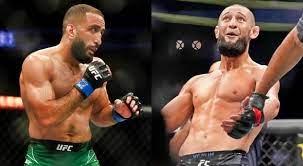
As things stand, the tension between Belal Muhammad and Khamzat Chimaev remains unresolved. Both fighters have their own perspectives, and both have valid points. The question now is whether they can find common ground or if their rivalry will continue to escalate.
One possible outcome is that the two fighters will eventually meet in the octagon, settling their differences the only way fighters know how—through competition. Such a matchup would not only be a compelling sporting event but also an opportunity for both men to prove their authenticity and resolve.
Fan Reactions and Community Impact
The MMA community has been divided in its response to the feud. Some fans side with Chimaev, applauding his commitment to authenticity and his refusal to tolerate what he sees as hypocrisy. Others sympathize with Belal, recognizing the pressures that come with being a top contender and the need to call out the best in order to advance one’s career.
Regardless of which side fans take, the rivalry has generated significant interest and discussion. It has also highlighted the importance of clear communication and mutual respect, both inside and outside the cage.
Lessons from the Muhammad-Chimaev Rivalry
The Power of Words
In MMA, words can be just as powerful as punches. The way fighters talk about each other—whether in interviews, on social media, or face to face—can shape public perception and influence the trajectory of their careers. The Muhammad-Chimaev feud is a reminder that words matter, and that authenticity is always under scrutiny.
The Role of Cultural and Religious Identity
The use of terms like “brother” in the context of shared cultural and religious identity adds another layer of complexity to the rivalry. For many fighters, these bonds are sacred and not to be taken lightly. When they are invoked in the heat of competition, misunderstandings can arise, leading to hurt feelings and damaged relationships.
The Need for Resolution
Ultimately, rivalries like this one are best resolved through honest communication and, when appropriate, competition. Whether Muhammad and Chimaev can clear the air remains to be seen, but their story serves as a valuable case study in the challenges of balancing personal relationships with professional ambition.
The Broader Implications for MMA
The Evolution of Fighter Relationships
As MMA continues to grow in popularity, the relationships between fighters are becoming more complex. Social media has made it easier than ever for athletes to interact with each other and with fans, but it has also increased the potential for misunderstandings and public disputes.
The Muhammad-Chimaev rivalry is emblematic of this new era, where every word and gesture is subject to public scrutiny and instant reaction.
The Importance of Sportsmanship
At its core, MMA is about respect—respect for the sport, for one’s opponents, and for oneself. While rivalries are an essential part of the game, they should never come at the expense of sportsmanship. Fighters like Muhammad and Chimaev have a responsibility to set an example for the next generation, showing that it is possible to compete fiercely while maintaining integrity.
The Role of Fans and Media
Fans and media play a crucial role in shaping the narrative around rivalries. By amplifying certain comments or actions, they can either escalate tensions or encourage reconciliation. It is important for all stakeholders to remember that fighters are human beings, subject to the same emotions and pressures as anyone else.
The ongoing tension between Belal Muhammad and Khamzat Chimaev is a testament to the passion and intensity that define MMA. Their rivalry has captured the imagination of fans and sparked important conversations about authenticity, respect, and the nature of competition.
As the story continues to unfold, one thing is certain: both fighters are committed to proving themselves, both as athletes and as individuals. Whether they ultimately resolve their differences or continue down the path of rivalry, their interactions will continue to shape the landscape of the sport.
For fans, the best course of action is to watch, engage, and, above all, respect the fighters who put everything on the line for our entertainment. The world of MMA is richer for its rivalries, and the Muhammad-Chimaev saga is just the latest example of why we love this sport.
